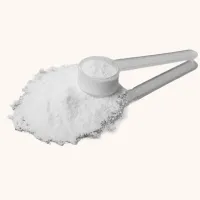








Magnesium Bisglycinate
Support your health and wellness goals with our high-potency Magnesium Bisglycinate supplement for deeper sleep, muscle health, reduced anxiety, and more. Our groundbreaking formula is chelated using an advanced process that bonds Magnesium with the amino acid glycine for maximum intestinal absorption that's gentle on your gut.




Support your health and wellness goals with our high-potency Magnesium Bisglycinate supplement for deeper sleep, muscle health, reduced anxiety, and more. Our groundbreaking formula is chelated using an advanced process that bonds Magnesium with the amino acid glycine for maximum intestinal absorption that's gentle on your gut.
Made with
Natural Plant-Based Ingredients

Magnesium is an essential mineral often lacking in the modern diet, which helps support normal muscle function, nerve function, bone health, blood pressure, and sleep & relaxation.

Made from Hypromellose (plant cellulose)

Nutrition Panel
Ingredients: Ashwagandha Root, Organic Black Pepper Extract, Vegan Capsules made from Pullulan, a plant starch.
Warning: For healthy adults 18 years of age or older. Consult a medical doctor before use, especially if you are pregnant, nursing, anticipate surgery, take medication, or are otherwise under medical supervision. Keep out of reach of children.
Proven Benefits




Magnesium Bisglycinate
Made from Magnesium Bisglycinate and Veggie Capsule.




































